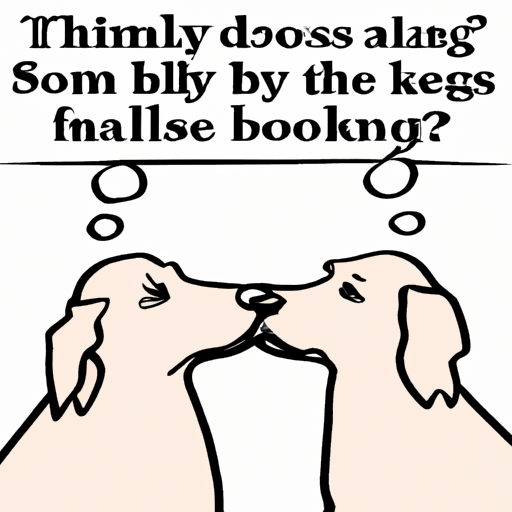“`markdown
Why Do Dogs Kiss Each Other in the Mouth?
Understanding Canine Behavior
Your dog isn’t just a pet, but a member of your family. Their behaviors might seem strange or even baffling at times. One such behavior you might have noticed is dogs seemingly kissing each other in the mouth. This behavior isn’t about romance, but it’s deeply rooted in their instinctual behaviors.
- Communication: Dogs have their unique language. Mouth-to-mouth interaction can be a form of communication, expressing friendship, submission, or seeking attention.
- Feeding: In the wild, mother dogs would regurgitate food for their puppies. This behavior might be a relic of that instinct.
- Exploration: Dogs explore their world through their mouth and nose. This behavior can be a way of getting to know each other better.
The Caregiver’s Role
As a caregiver, your role in understanding and responding to this behavior is crucial. Here’s what you can do:
- Observe: Keep an eye on the interaction. Is it mutual? Are both dogs relaxed and comfortable?
- Intervene: If one dog seems uncomfortable or the behavior becomes obsessive, it’s time to step in.
- Consult: If you’re unsure, seek advice from a professional dog trainer or a behaviorist.
Recognizing Aggression
Understanding the difference between friendly interactions and potential aggression is vital. Here is a table differentiating the two.
| Friendly Interaction | Potential Aggression |
|---|---|
| Relaxed body language | Stiff body language |
| Both dogs participating | Only one dog participating |
| No growling or snarling | Growling or snarling |
Dealing with Obsessive Behavior
Occasionally, this behavior can become obsessive, leading to potential problems. In such cases, it’s important to:
- Redirect Attention: Provide toys, treats, or initiate play to distract them.
- Teach Commands: Use commands like “leave it” or “stop” to control the behavior.
- Seek Professional Help: If the behavior persists, consult a professional.
Frequently Asked Questions
Q1: Is it harmful if dogs kiss each other in the mouth?
No, typically it’s not harmful. It’s a natural behavior unless it becomes obsessive or one dog is uncomfortable.
Q2: Can this behavior spread disease?
Yes, if one dog is carrying a disease, it can potentially spread. Always ensure your pets are up-to-date with their vaccinations.
Q3: What if my dog doesn’t like being kissed by other dogs?
Teach other dogs to respect your dog’s space. If necessary, consider professional training.
Understanding your dog’s behavior can strengthen your bond and ensure their wellbeing. Always approach their actions with patience, love, and a willingness to learn.
“`



